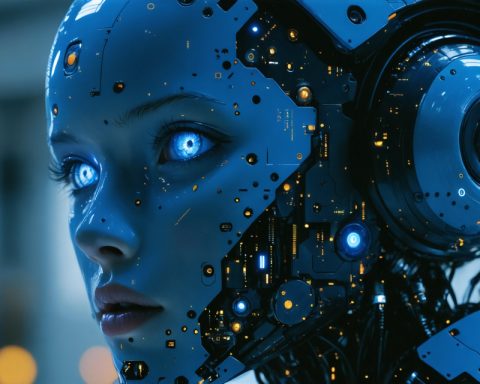A cutting-edge initiative has launched to address the rising concerns of elderly isolation in Fukushima, Japan. Spearheaded by Seaman Artificial Intelligence Laboratory, this project introduces an innovative AI-powered speaker designed specifically for older adults living alone.
Project Overview
Working in collaboration with the “Fukushima Innovation Coast Scheme,” Seaman AI has committed itself to developing a groundbreaking “chatting AI guardian speaker” in the disaster-affected region of Kawamata. This tech marvel aims to alleviate the loneliness experienced by the elderly population there and is now calling for trial participants to refine its application.
Technological Prowess
Seaman AI, emerging from a background in interactive entertainment, has crafted a proprietary conversational AI engine that goes beyond traditional models by maximizing engagement and warmth in conversations. The speaker, aptly called “Matahei,” embodies local folklore through engaging persona and communication styles, thus making monitoring feel less intrusive and more personalized to each user’s lifestyle.
Social and Cultural Impact
With Fukushima facing significant demographic changes post-disasters, over half of Kawamata’s populace surpasses 60 years in age. The goal here is to develop supportive living solutions that enhance the elderly’s quality of life and encourage community integration. The AI speaker initiative is a forward-thinking response to social isolation, using cultural touchstones to foster community spirit and individual well-being.
Become a Monitor
Recruitment is open for Kawamata residents aged between 65 and 85 to participate in this transformative project, scheduled from December 2024 to January 2025. Engage in redefining elderly care with AI and take part in this journey towards a future where solitude is a thing of the past.
Enhancing Elderly Lives with AI: Tips, Life Hacks, and Interesting Insights
With innovative technology rapidly becoming part of everyday life, projects such as the AI-powered speaker in Fukushima address critical social issues like elderly isolation. Below are some tips, life hacks, and interesting facts for anyone interested in similar initiatives or looking to integrate AI into senior care solutions.
Tips for Engaging the Elderly with AI
1. Personalization is Key: Ensure that AI devices used by older adults are tailored to their interests and cultural background. This makes interactions more meaningful and enjoyable, similar to how the Matahei speaker incorporates local folklore.
2. Simplify User Interfaces: Older generations might be less tech-savvy, so simplifying interfaces can significantly enhance user experience. Voice commands can be an excellent alternative for elderly users who might struggle with touch screens or small buttons.
3. Provide Training and Support: Offering initial training sessions and ongoing support can help older adults feel more comfortable using new technology, fostering independence and reducing feelings of isolation.
Life Hacks for Integrating AI into Daily Life
1. Routine Reminders: Use AI assistants to set reminders for daily tasks such as taking medication, scheduling appointments, or even social activities, which can help maintain a structured daily routine.
2. Virtual Companionship: AI can offer companionship by engaging in friendly conversations or playing interactive games, which are particularly beneficial for those who live alone and may feel lonely.
3. Safety Checks: Some AI devices can be set up to perform regular safety checks or notify family members if they detect an emergency, offering peace of mind for both the user and their loved ones.
Interesting Facts About AI in Elderly Care
– Rise of Smart Homes: The integration of AI in homes is on the rise, providing solutions like automated lighting, heating, and security systems that cater to the needs of the elderly.
– AI in Healthcare: AI is being used to analyze health data and provide predictive analytics, helping prevent potential health issues in older adults before they escalate.
– Cultural Sensitivity: AI can be programmed to recognize and respect cultural differences, offering more culturally sensitive care, much like how the AI initiative in Fukushima integrates local traditions.
These insights showcase the transformative potential of AI in enhancing elderly care. As projects like Seaman AI’s speaker in Fukushima gain traction, they pave the way for a future where technology enriches the lives of older adults by fostering connection and improving independence.
For more information on AI and its applications, check out IBMs website or explore Microsofts AI solutions. These platforms provide a wealth of resources and guidance for integrating AI into various sectors, including elderly care.













